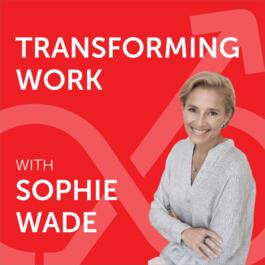
Stephan Meier - Behavioral Economics at Work: Endorsing Employee Centricity
Stephan Meier is Professor of Business Strategy at Columbia Business School and author of The Employee Advantage: How Putting Workers First Helps Business Thrive. Stephan describes how behavioral economics examine social dynamics and decision-making. He describes the importance of intrinsic motivation and fairness at work and the effect on behavior of monetary and non-monetary incentives. Stephan explains how fast-evolving business conditions require trusting leadership and empowered employees. He shares insights about flexibility and relatedness as key motivators which affect hybrid/remote working models. TAKEAWAYS [02:27] Stephan was fascinated by history but studied economics to understand the world better. [03:19] Traditional economic models, though predictive, lack alignment with human behavior. [04:09] Stephan explores behavioral economics to study non-rational behaviors and model deviations. [06:03] For his PhD, Stephan researches intrinsic motivations and non-selfish human interactions. [08:08] Early management models assumed people are lazy therefore control and incentives were essential. [09:01] Lack of training to support employee-centric versus control, incentive mechanisms. [11:06] Stephan’s thesis emphasizes intrinsic motivations and the joy achieved by helping others. [12:01] Fairness and social norms are important to foster collaboration and group motivation. [13:00] How monetary incentives can undermine social relationships. [14:21] The dynamics of social and intrinsic motivation compared with financial motivation. [17:13] Stephan’s Federal Reserve work focused on behavioral economics and improving financial decision-making. [19:31] How people revert to status quo choices when tired and lacking nourishment. [22:00] Money affects work-related decisions for people who are distracted by financial stressors. [23:33] How behavioral science and economic rational competition determine our behaviors which need to be balanced. [24:50] We overestimate our own decision-making abilities, not conscious of influential factors. [25:35] How managers, as humans, are affected by layoffs and unemployment benefits. [28:32] Thinking about employees like customers and improving their experiences. [29:11] Competition and transparency are two key reasons for the new employee emphasis. [30:27] A third reason is having more data and tools to personalize work experiences. [32:35] Employee centricity: fixing pain points and finding moments that matter along the Employee Journey. [33:21] The need for constant feedback and innovation to improve employees’ experiences. [35:07] What really motivates people and using technology to enhance not destroy this. [35:52] At the current pace of change, the importance of trusting relationships and autonomy. [36:35] Especially in AI-integrated, flatter companies, we need to empower employees. [37:20] Upskilling employees by matching them with opportunities just as Netflix matches viewers with their preferences. [40:00] Flexibility and relatedness are important motivators to consider when optimizing hybrid and remote work models [40:16] IMMEDIATE ACTION TIP: To achieve a more employee centric approach, tap into two motivators: flexibility, giving people autonomy about how, when, where to work; and relatedness having social interactions which include in person. [41:45] Leaders need to embrace behavioral insights to adapt for new working environments. [43:16] Being intentional about workplace culture and coordinating office-based working. [45:30] Treating employees well is a win-win. [46:30] We must understand what motivates employees and use technology to enhance these motivators. RESOURCES Stephan Meier on LinkedIn Stephan’s website Stephan’s book “The Employee Advantage: How Putting Workers First Helps Business Thrive” QUOTES “If we think people are lazy and we want to control, technology gives us the amazing tools to control to the level that we never could before. But that will be exactly destroying everything about the trusting relationship.” "If you integrate more AI, normally the hierarchies become flatter. Now you actually need teams who work more autonomously. You empower them and it's a very different way of managing because you now have to trust them as well.” “The same trends that led to customer centricity lead to employees centricity. We actually have a lot of tools about customers that we can now apply to employees. We can figure out what are the pain points, what are the moments that matter or whatever you want to call those for our employees to actually delight them.” “We do have to empower employees more. Top down works really well when it's relatively stable and not changing in working when it's moving fast, you have to change.” “Most leaders are not trained in understanding what motivates people beyond monetary control mechanisms.”
From "Transforming Work with Sophie Wade"


Comments
Add comment Feedback